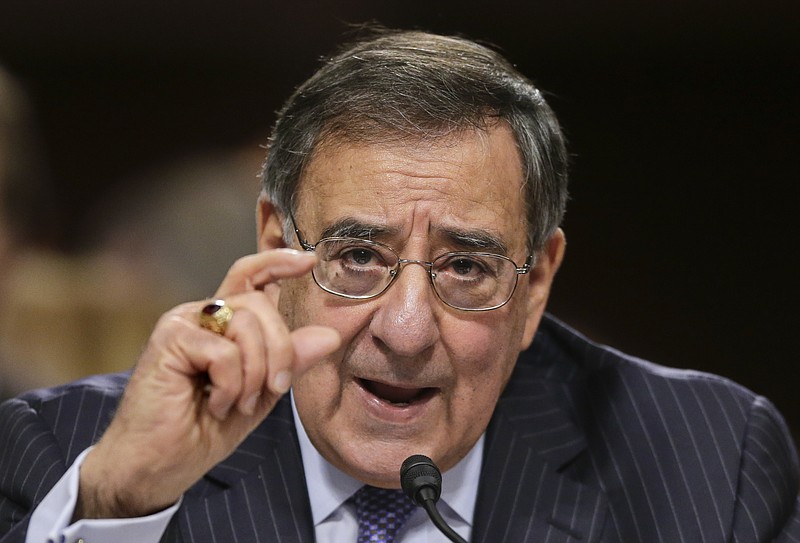If it had been a feature film, the Obama administration's response to Russian meddling in the 2016 presidential election might appropriately have been called "Failure to Launch."
Of course, that name already was taken by a forgettable 2006 Matthew McConaughey film about a 30-something's unwillingness to get on with his life, but it fits nonetheless, as last week's lengthyWashington Post report revealed.
In early August of last year, President Barack Obama was given intelligence information of Russian President Vladamir Putin's direct involvement in a cyber campaign to disrupt and discredit the presidential race.
Rather than taking decisive action, Obama, as he did on foreign policy decisions throughout his eight years in office, dithered. The Post report indicated the administration was wary of politicizing the scandal and afraid its response would be seen as helping the Hillary Clinton campaign, so the intelligence community's September public statement never included the president's name.
Instead, we believe if the then-president had pulled Clinton and Donald Trump off the campaign trail, briefed them together on what intelligence sources had learned, told them of severe sanctions the administration was about to put in place and then appeared with them together in a Rose Garden speech to reveal the intelligence and the sanctions to the American people, we would not be talking about Russia 10 months later.
Hindsight, of course, is 20-20. But some in and around the administration agree the president's response was weak and ineffectual.
U.S. Rep. Adam Schiff, D-Calif., the ranking minority member on the House Intelligence Committee, said Obama made a "very serious mistake" in not doing more. He needed "to call out Russia earlier, and needed to deter and punish Russia earlier," Schiff said.
He said the president should have let the public know about Russian actions while the campaign was still going on.
"It is the hardest thing about my entire time in government to defend," a former senior Obama administration official involved in White House deliberations on Russia is quoted in the Washington Post report. "I feel like we sort of choked."
President Trump, whose perceived dim prospects for election in November also are thought to have played into the administration's tepid response, had questions, too.
If Obama had the information, he said on Fox News Sunday, "why didn't he do something about it? He should have done something about it."
What he did do about it was very little. While in Hawaii on vacation on Dec. 29, he signed onto a punishment package that included booting 35 suspected Russian agents from the country and closing two Russian compounds in the United States.
The Post report characterized the punishment as having "had no impact." A senior administration official involved in the decision called the measures "symbolic" in the report.
Economic sanctions, as were placed on Russia in 2014 after its aggressive action in Ukraine, would have been much more damaging. That left the disturbing perception, officials said in the report, some felt Russia's action in Ukraine seemed more important than its interfering with elections in the United States.
Leon Panetta, the former Obama administration defense secretary and CIA director, told Fox News Tuesday that Putin had sensed weakness.
"I think when [Putin] conducted the cyber-attacks in the United States during the last election, he felt he could get away with it, without any kind of response," Panetta said. "If there's anything I've learned in dealing with the Russians, it's that you have to show them that there's a line beyond which they cannot cross.
"He's somebody who takes advantage of weakness," he added, "and if he senses weakness, then he'll take advantage of it,"
Now, nearly eight months after the election, the Russians, no doubt, are laughing. They've gotten off practically free as Democrats and the American media continue to act as if Trump somehow knew or colluded in the election tampering. Former FBI Director James Comey told Trump at least three times he wasn't under investigation over such allegations and by March 15 had told leaders in both parties the same thing. But even the Democrats who knew the truth continued to talk as if he were.
Bit by bit, though, things are falling apart for those who'd like Trump's hide. On Monday, three CNN staff members resigned after the network had to retract and delete a story that a Trump ally was linked to the Russian Direct Investment Fund. Now a hidden-camera interview has revealed a longtime CNN producer calling the Russian-Trump ties story "mostly bull--" and saying the president is "probably right to say, look, you are witch-hunting me. You have no smoking gun. You have no real proof."
At this point, we'd like to see Trump do what Obama wouldn't - apply economic sanctions to Russia over the election meddling. That won't stop the political pursuit of Trump, but it would - again - inform Russia that a weak United States is so 2016.
